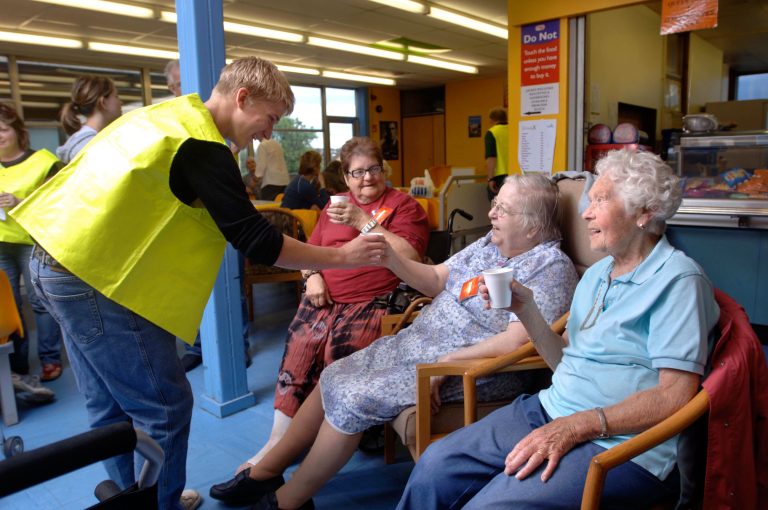Having come to power promising ‘national renewal’, the new government has swiftly sought to demonstrate why such renewal is needed. From prisons and hospitals to the public finances, the picture is one of a state in crisis.
Perversely, in recent years, crisis management has almost become the comfort zone of British politics. Labour has offered mission-led government as an alternative. But if it is to get missions off the ground, the new government will need to look beneath the crises and examine the fundamental shape of the state it has inherited.
While structures have an important part to play in this, the state’s biggest asset is its people. The government has acted quickly to put relations with the Civil Service on a more positive footing, assuring them of respect and backing this with a better-than-expected pay settlement. And in the Chancellor’s promise to halve spending on consultants, the government has signalled a commitment to weaning the state off its over-reliance on outsourcing basic services and functions.
This is a welcome move – Government spend on consultants has risen by more than 60 per cent since before the pandemic alone. But as The Future Governance Forum makes clear in Mission Critical 01: Statecraft for the 21st century – a joint paper with the UCL Institute of Innovation and Public Purpose and written by Professor Mariana Mazzucato – this must go hand in hand with active efforts to invest in public sector capacity and know-how: bringing in outside expertise where necessary, but above all, upskilling the existing workforce with the capabilities that are pivotal to the success of mission-driven government.
Reshaping the state
Issues of poor pay and cumbersome recruitment processes are well known, with the state unable to compete with the private sector for specialist skills in particular. As the new government has quickly discovered, it is not easy to cut through these issues. Less discussed, however, is the learning and development offer for officials. Many people who join the Civil Service do so from a sense of public purpose; yet the broadest, most experiential, most future-focused learning opportunities, which offer a chance to exchange ideas and reflect on that bigger picture, are often tilted towards more senior and more policy-oriented officials. The bulk of provision skims over purpose and culture, focusing more narrowly on skills.
This is not a new problem: a Parliamentary inquiry a decade ago cited a government body which ‘sent people on PRINCE2 training courses and then considered them to be project managers’. While progress has since been made, it remains piecemeal, and Labour must recognise this issue as a significant barrier to mission delivery. Knowing what project management is will be of little use without knowing why you are doing it and how to navigate the political, commercial and bureaucratic headwinds you might encounter along the way. An atomised, purely functional view of learning and development misses the opportunity afforded by Labour’s missions for ‘creating new coalitions, overcoming silos and providing the long-term vision we need’.
A learning opportunity
The government now has the opportunity to embrace learning and development as a lever for change. It should develop a new curriculum focused on building agency, competence and collaboration, which brings together not only the skills but also the knowledge and cultural nous necessary to understand and progress towards a mission. Some content will be broadly applicable to mission-led approaches in general, such as working across boundaries, systems thinking, engaging citizens and translating policy into delivery. Other aspects will be more specific to one mission, such as ‘how does the energy grid work?’ or ‘how do we measure economic growth?’ And many parts of the picture will only be accessible through honest, collective reflection and sharing of experiences: what are the tensions between different policy objectives in government? How might project parameters and political pressures clash? What are the limitations of the state apparatus, and how can these be transcended?
If missions are about convening a whole system, the people operating different parts of that system need to be aware of and be able to communicate with each other. Bringing together and investing time in cohorts of colleagues from different departments, agencies, job roles and even (gasp) grades should be the norm, rather than the preserve of ‘high performers’ or ‘future leaders’. The missions themselves offer an ideal focal point to bring people together, and to turn ‘mandatory training’ from a tick-box chore to an inspiring experience.
Going further, building learning and development around missions offers a rare opportunity to break down silos across the public sector, particularly with those on the front line of mission implementation in local government or the NHS, by proactively bringing different public servants together – in real life, as well as online. While some progress has been made towards this often-cited ambition, it has not yet been achieved at any meaningful scale.
Making it happen
Delivering meaningful learning and development is itself an area where Government lacks its own capability. In a decision likely already in train by the time of the election, current training contracts with KPMG and EY have been extended for another year. The new administration must use this breathing space to make learning and development in government a true lever for change. In many cases, new approaches will require new providers, and the recently-announced change of direction on public procurement – itself an example of using the state’s levers to shape markets and drive missions – will provide a practical basis for bold reform. A commercial contract, or even a partnership vehicle, could be constructed around a network of smaller and specialist learning providers, drawing on a wider range of expertise and approaches to provoke and inspire officials – and leading by example in the new world of mission-driven procurement.
This shift will not be straightforward. A successful programme of reform to Civil Service learning and development will need to overcome hierarchical and organisational prejudices, resist commercial and bureaucratic vested interests and compete with other priorities for time and attention. But if Labour is serious about ‘fixing the foundations’ of the state and the country, they must ensure that those who will bear the brunt of that daunting task have the skills, knowledge and support they need to achieve it.
About Majeed
Majeed Neky is Assistant Director, Economy at the West London Alliance, working across the seven West London boroughs to drive forward the sub-region’s economic vision and deliver joint priorities across skills, digital, net zero and infrastructure. Previously, Majeed worked on a range of cross-cutting priorities and place-based policy initiatives within the Civil Service, including in the Levelling Up Taskforce, Department for International Trade, Infrastructure and Projects Authority and Cities and Local Growth Unit.




